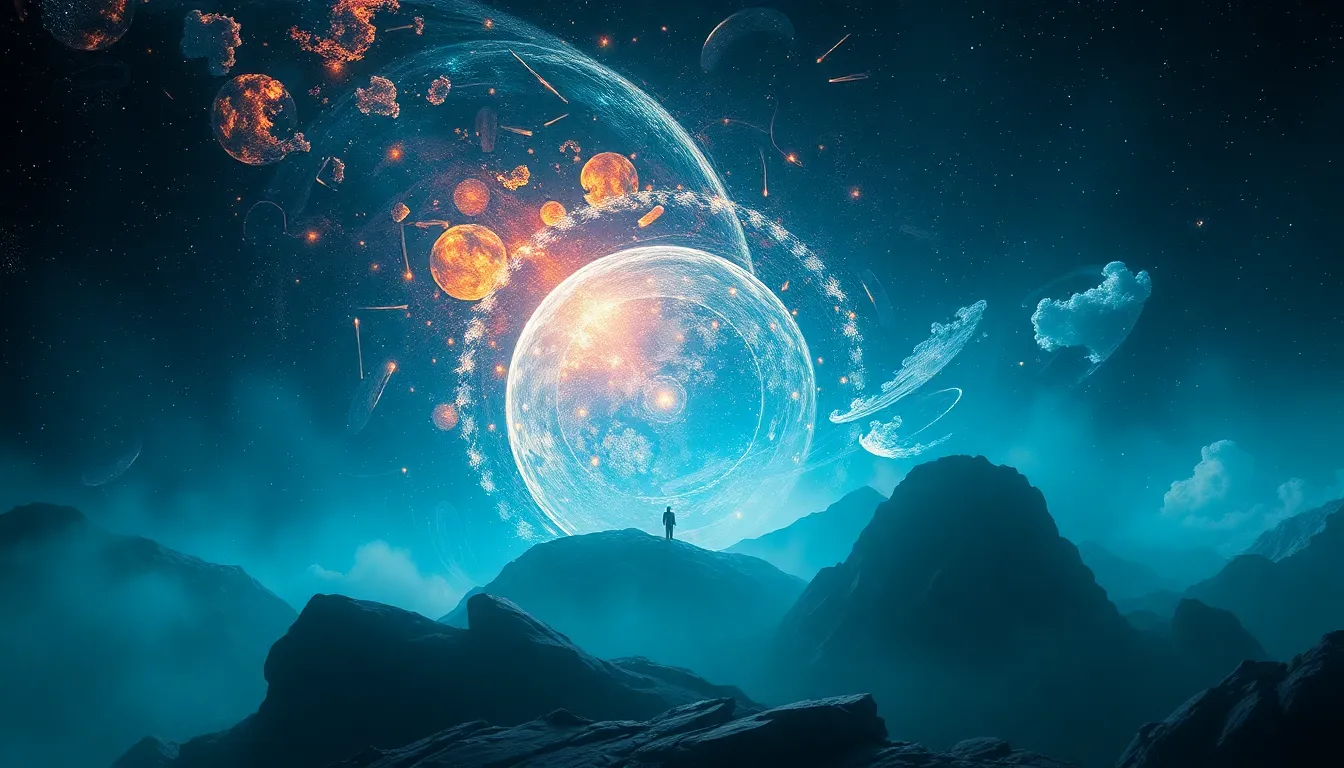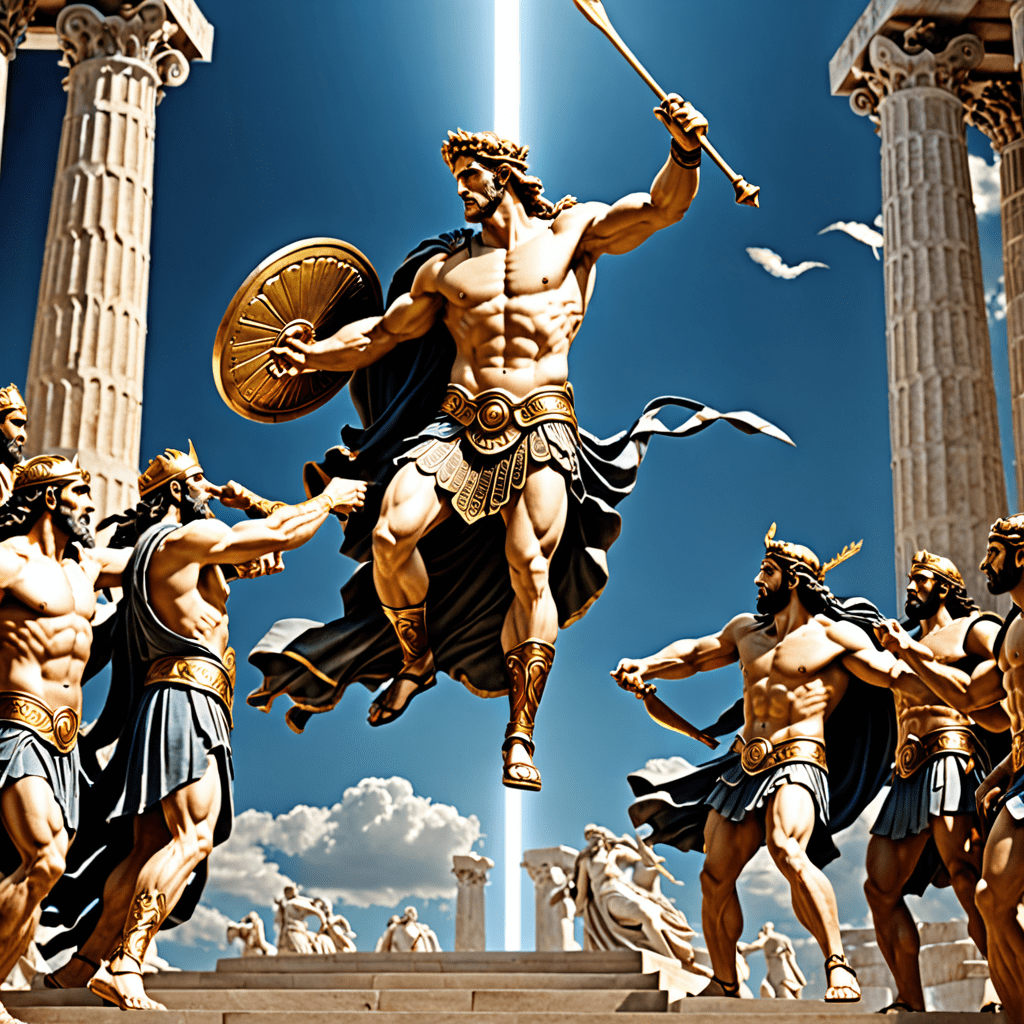The Birth of Time: Creation Myths That Challenge Our Perception
I. Introduction
The concept of time has perplexed humanity for millennia, forming the backbone of our understanding of existence and reality. Time, often perceived as a linear progression from past to future, is a fundamental aspect of how we navigate life. Yet, various cultures have articulated different understandings of time through creation myths, which often challenge and reshape our perception of this elusive dimension.
Creation myths serve as powerful narratives that provide insights into the beliefs and values of a culture. They explain not only the origins of the universe but also the nature of existence itself. This article aims to explore diverse creation myths from around the world, revealing how they challenge our conventional perceptions of time and offer alternative interpretations that can broaden our understanding of existence.
II. The Nature of Time: A Philosophical Inquiry
Philosophical perspectives on time can generally be categorized into two main frameworks: linear and cyclical. The linear view posits that time moves in a straight line from a definitive beginning to an inevitable end, embodying a clear past, present, and future. In contrast, cyclical time suggests that events repeat in a circular manner, emphasizing the eternal return of creation and destruction.
The relationship between time and existence is profound. Philosophers like Henri Bergson argued that time is experienced subjectively, while others, like Isaac Newton, viewed it as an absolute entity. Creation myths often reflect these philosophical views, as they encapsulate human understanding of existence within the temporal realm.
III. Ancient Mesopotamian Myths: The Beginning of Time
One of the most significant ancient creation myths is the Enuma Elish, a Babylonian epic that describes the formation of the world from primordial chaos. In this myth, the god Marduk battles the chaos monster Tiamat, ultimately establishing order and time through the creation of the heavens and the earth.
The role of the gods in shaping time and order is central to this narrative. Marduk’s victory over chaos symbolizes the triumph of structure over disorder, presenting a linear progression of time where creation follows destruction. This myth implies that time itself is a product of divine action, leading to a structured universe.
IV. Hindu Cosmology: Cycles of Creation and Destruction
In stark contrast to the linear narratives found in Mesopotamian myths, Hindu cosmology presents a cyclical understanding of time through the concept of Yugas. According to Hindu belief, time is divided into four ages (Satya, Treta, Dvapara, and Kali), each characterized by a decline in virtue and an eventual return to the beginning.
- Satya Yuga: The age of truth and righteousness.
- Treta Yuga: The age of three-quarters virtue and one-quarter vice.
- Dvapara Yuga: The age of half virtue and half vice.
- Kali Yuga: The age of darkness and moral decline.
This cyclical perspective emphasizes the interplay between the divine and temporal existence, illustrating how creation and destruction are inextricably linked. In Hindu thought, time is not merely a linear march toward an end but an endless cycle of birth, death, and rebirth.
V. Native American Perspectives: Time as a Living Entity
Various Native American creation stories offer unique perspectives on time, often portraying it as a living entity deeply connected to nature and spirituality. For many Indigenous cultures, time is not a mere sequence of events but a holistic experience intertwined with the rhythms of the natural world.
In these narratives, creation is often depicted as an ongoing process rather than a singular event. The stories emphasize the importance of living in harmony with nature, reflecting a cyclical understanding of time:
- Time as a season of growth and decay.
- The interconnectedness of all beings.
- The importance of ancestral knowledge and traditions.
These myths teach valuable lessons about the importance of respecting the earth and recognizing the spiritual dimension of time.
VI. African Creation Myths: Time and Ancestral Spirits
African creation myths are rich and diverse, often emphasizing the role of ancestors in the fabric of time. In many cultures, ancestors are believed to influence the present, shaping the community’s understanding of time as a continuum that connects the past, present, and future.
For instance, in some West African traditions, time is seen as an ancestral spirit guiding the living, highlighting the importance of heritage and community. This belief creates a collective experience of time, where individuals draw strength from their ancestors:
- Time as a communal resource.
- The significance of oral traditions in preserving history.
- The impact of ancestral guidance on daily life.
The interplay between time and ancestry fosters a deeper appreciation of existence and community, enriching individual and collective experiences.
VII. Eastern Philosophical Myths: Time in Buddhism and Taoism
Eastern philosophies, particularly Buddhism and Taoism, offer profound insights into the nature of time. In Buddhism, the concept of impermanence (anicca) emphasizes that all things are in a constant state of flux. This understanding challenges the notion of time as a fixed entity, instead portraying it as interwoven with change.
Taoism further explores the flow of time through the lens of nature and natural cycles. The Tao Te Ching teaches that time is a continuous process that must be embraced rather than resisted. Key aspects include:
- The harmony of natural rhythms.
- The acceptance of change as a fundamental aspect of existence.
- The balance between action and inaction (Wu Wei).
These philosophies encourage a reflective understanding of time that resonates with modern interpretations of existence.
VIII. Abrahamic Religions: Time and Divine Creation
In Abrahamic religions—Judaism, Christianity, and Islam—creation narratives present a linear understanding of time, characterized by a definitive beginning and an anticipated end. The Book of Genesis describes the creation of the world in six days, culminating in the Sabbath, establishing a structured timeline.
This linear view of time is significant for theological implications, as it frames human existence within a divine plan. Key themes include:
- The notion of a created order.
- The significance of prophecy and eschatology.
- The moral responsibilities of humanity within a temporal framework.
These beliefs shape the worldview of millions, emphasizing the importance of time in the context of divine purpose and human agency.
IX. Modern Scientific Perspectives: Time from a Quantum View
Contemporary physics has revolutionized our understanding of time, challenging traditional notions through theories such as relativity and quantum mechanics. These scientific frameworks suggest that time may not be a linear or absolute construct but rather a complex interplay of events and perceptions.
The intersection of myth and science reveals fascinating insights into the nature of time. For example, the concept of time dilation in relativity posits that time can vary based on speed and gravity, echoing cyclical and fluid interpretations found in various myths. Key implications include:
- The relativity of time perception.
- The interdependence of time and space.
- The potential for parallel realities and timelines.
These scientific advancements stimulate a reevaluation of creation myths, inviting a dialogue between ancient narratives and modern understandings of existence.
X. Conclusion
The exploration of creation myths across cultures reveals a rich tapestry of beliefs that challenge our conventional perceptions of time. From the linear narratives of the Abrahamic faiths to the cyclical philosophies of Hinduism and Eastern traditions, these myths offer profound insights into the nature of existence and the human experience.
Ultimately, the diverse interpretations of time remind us of our shared quest for understanding and meaning in a world that is perpetually in motion. By engaging with these narratives, we can enrich our perception of time and embrace the complexities of existence.



